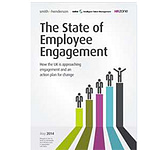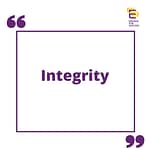“Company culture” has become a very trendy topic in today’s workplace. In 2006, Google actively aimed to increase its focus on workplace culture by adding the title “Chief Culture Officer” to their head of HR’s job description and title. Since then, other companies have followed this path and have implemented culture management duties to staff members. The concept of culture in the workplace is not only important to recruiting and staffing efforts, but employee engagement efforts as well.
In order to define company culture, Software Advice, a company that reviews human resources software, conducted a survey of 886 adults to learn how they define company culture. Some of the key findings are shown below in the charts:
Since 1980, there has been a large rise in the usage of the phrase ‘company culture’. This is especially prevalent in literature, as is shown below in the chart and data gathered from Google’s Ngram viewer.
The results of the Software Advice survey also determined that the most common definition of company culture, as shown in the chart below, is ‘casual/relaxed’. Other common responses included ‘family-oriented’ and ‘honest/transparent’.
Following up on respondents’ definitions of company culture, Software Advice asked those same respondents which of the five most common definitions would convince them to apply at a company. ‘Honesty/transparency’ was the most preferred attribute, with 29% of respondents citing those traits as most preferred.
Overall, company culture is defined differently by employees, employers as well as job seekers. But one thing remains consistent, and that is the fact that company culture is important to all parties involved and maintaining an honest/transparent culture can help with recruiting, retention and overall employee engagement.
To read the full article and find out more, click on this link
Image courtesy of Stockimages/ FreeDigitalPhotos.net




